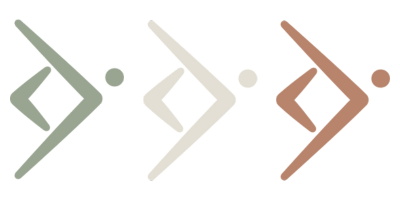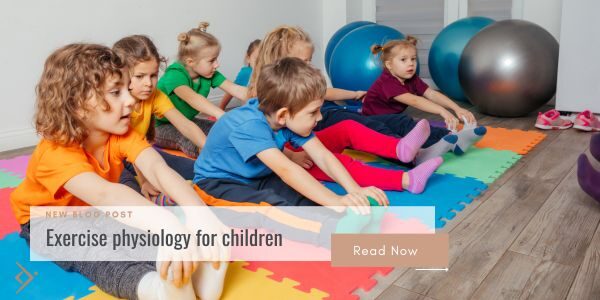Ask any Exercise Physiologist, and they’ll tell you that exercise is medicine. It’s great for improving your strength, increasing your mobility and also for managing pain, all of which betters your quality of life. It’s why our slogan at Body Dynamics Illawarra is Movement with Purpose, and it’s why we love doing what we do.
We think it’s particularly important that people of all ages can benefit from Exercise Physiology. After all, it’s not just adults who need it. Exercise Physiology is a great treatment and management tool for children with injuries, illnesses or other medical conditions, particularly mental ill health. It can be an effective way to empower and support them in leading active lives and developing lifelong healthy habits.
At Body Dynamics Illawarra, we’re specialists when it comes to all areas of Exercise Physiology, but working with kids has always held a special place in our hearts. Matt, one of our Exercise Physiologists, has this to say:
“I love working in NDIS and tend to manage our new participants and organise service agreements. We work in any age group but also really enjoy working with kids in this area.”
WHAT CAN EXERCISE PHYSIOLOGY DO FOR A CHILD?
Generally, children aged five or more years should aim to participate in sixty minutes of moderate to vigorous aerobic activity per day and muscle-strengthening activities at least three days per week. Long periods of sitting should also be avoided. Unfortunately, for children with injuries, illnesses or other medical conditions, it can be challenging to achieve this without extra support.
Exercise Physiology for children can be an effective measure to help them meet these minimums. By offering targeted, tailored and age-appropriate support, children can enjoy the cardiovascular and muscular benefits of exercise in a format that meets their specific needs. In doing so, the negative outcomes associated with a sedentary lifestyle — obesity, fatigue, pain, weakness, poor mental health and reduced social participation — can be curbed.
Another important benefit of Exercise Physiology for children is its positive impact on cognitive development and emotional well-being. Physical activity can improve brain function, including cognitive skills, memory and attention span. At the same time, it can help them with stress reduction, self-esteem and socialisation due to the goal-setting and social nature of the practice.
THE IMPORTANCE OF GROSS MOTOR SKILL DEVELOPMENT
Exercise Physiology for children also helps with the development of gross motor skills. This is a category of motor skills that involves the use of large muscle groups and the coordination of the entire body to perform physical activities. These skills are typically acquired during childhood and continue to develop as a child grows.
Gross motor skills are essential for various activities, such as running, jumping, crawling, balancing, and throwing. These skills enhance balance, strength, muscle endurance, and coordination. While often associated with sports, it should be emphasised that they’re fundamental for everyday movements like maintaining good posture or getting dressed.
WHAT DOES EXERCISE PHYSIOLOGY FOR CHILDREN LOOK LIKE?
Exercise Physiology for children is designed to make physical activity fun while promoting an active lifestyle. At Body Dynamics Illawarra, we use evidence-based methods to help children develop core strength, balance, gross motor skills and mobility abilities.
An Exercise Physiology session for a child is typically designed to be safe, engaging and age-appropriate while focusing on their unique needs and goals. Exercise Physiology for children isn’t one-size-fits-all, but you can expect a session or plan to typically include the following:
Assessment and goal setting: Before beginning any physical activity, it’s necessary to conduct a brief assessment to understand your child’s current physical ability, fitness level, interests, and any specific objectives they may have.
Warm-up: Your child will be guided through a warm-up activity to prepare their body for exercise. This could include light stretching or other dynamic movements tailored to their needs. Likewise, at the end of the session, they’ll be guided through cool-down exercises to prevent muscle soreness.
Main exercise component: The primary portion of the session will involve a variety of exercises appropriate for the child’s age, fitness level, and goals. These exercises may include activities that improve cardiovascular fitness, strength training, balance exercises and gross motor skill development.
Feedback and progress monitoring: The session may include a discussion about your child’s performance, progress and any adjustments needed in their exercise plan.
Parent or guardian involvement: Depending on your child’s age, you may be involved in the session, either as a participant or to receive guidance on how to support your child’s physical activity at home.
GIVE YOUR CHILD THE SUPPORT THEY NEED
We’re here to help your child enjoy Exercise Physiology and all the benefits it has to offer them. With school holidays on the horizon, now is the perfect time to enrol your child in one of our Exercise Physiology programs. We’ve got an open day coming up on the 18th November so your child can get a feel for what our sessions look like before you commit. Sign up today!











